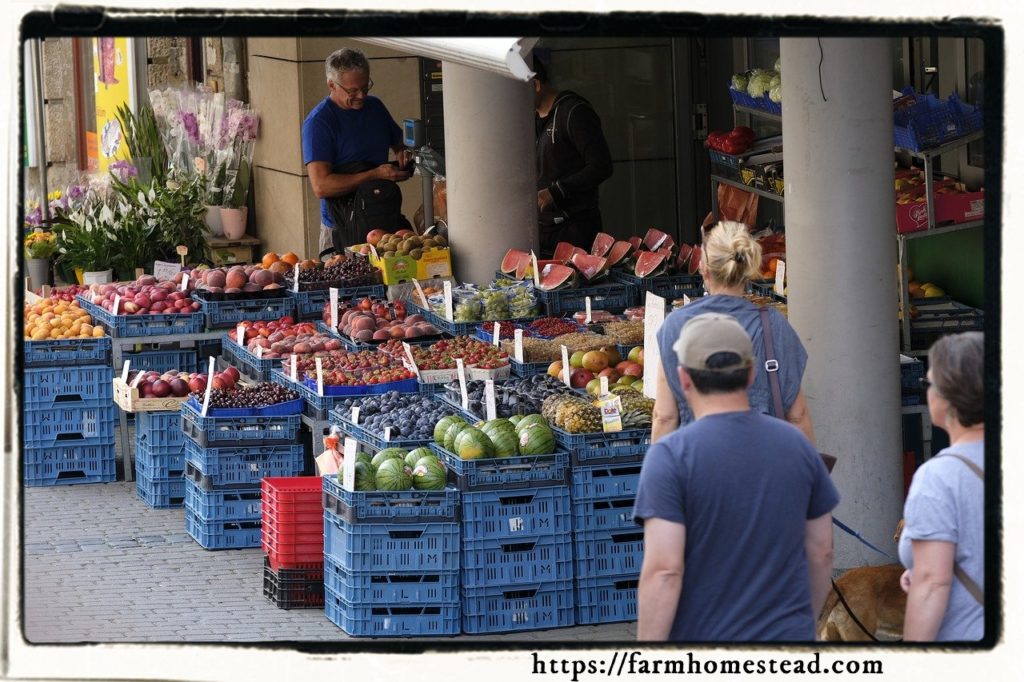What does the phrase “slow food” bring to mind? If you were told that “Slow Food” is an international movement with 80,000 members in 100 countries, could you guess its focus? Here’s a hint: Slow Food was born in Italy in 1986, and the international movement was founded in Paris in 1989. What do these two cultures have in common, food-wise?

Defining Slow Food
Here is an excerpt from the Slow Food Web site:
“Slow Food … is an international organization whose aim is to protect the pleasures of the table from the homogenization of modern fast food and life. Through a variety of initiatives, it promotes gastronomic culture, develops taste education, conserves agricultural biodiversity and protects traditional foods at risk of extinction.”
Italy and France are both known for their appreciation of quality foods, regional specialties, and fine wines, so it makes sense that they have been the leaders in this growing movement.
Slow Food is more than a backlash against our fast-paced, fast-food society. Slow Food enthusiasts recognize the important and varied roles that food plays in our lives. Food isn’t only a source of energy for our bodies. It’s also a connection to the earth that sustains us. It’s a reflection of the history and culture of a region, and a means by which families and friends gather and share. Growing crops, preparing foods, and breaking bread together have been at the center of civilizations for millennia.
Now our culture has strayed, and it shows in our fragmented lifestyles. We drink coffee from paper cups and eat takeout in the car. We dine while surfing the Internet or watching TV. Rarely do we gather for family meals, except perhaps at holidays. Many people in our society have little knowledge of, or interest in, where their food comes from or how it was prepared.
Americans are overworked and stressed out. According to the American Obesity Association Web site, 64.5 percent of U.S. adults aged 20 years and older are overweight, and 30.5 percent are obese. And even those of “proper” weight may be suffering from malnutrition.
Raise your hand if you have ever scarfed down a “super-sized” box of fries while driving, barely recognizing that you’ve eaten them until you reach for more and they’re gone? (My hand is raised.) That’s over 600 calories, about a third of the daily requirement, but zero in the nutrient department. How readily we are willing to sacrifice quality for speed; salt, fat, and sugar for real taste. We’re busy, we’re running late, and it’s just easier to go through the drive-thru on the way home.
But what are we so busy doing? Historically, people were busy growing, harvesting, preparing, and preserving food. Now we’ve handed those tasks over to others so that we can … what? Work longer hours? Each of us can fill in that blank in our own way. What do we lose as a culture when nourishing our bodies takes a back seat? What if Mom was right, and we really are what we eat?
Slowing Down … a Little
I get a kick out of the Food Network’s 30-Minute Meals television show. The enthusiastic host cooks a meal from start to finish during the half-hour show, dispelling the myth that healthful, tasty food takes a long time to prepare. Maybe this is America’s version of Slow Food. Not exactly slow, but not quite
so fast, either.
With the season’s harvest at its peak right now, give “slow food” a try. By enjoying local foods at their freshest and most nutritious, you’ll be tapping into a trend that’s both new and thousands of years old.
Find out more about the slow food movement and the state of our food supply at Slow Food.
Author, Suzanne DeJohn, a former self-professed “city girl,” Suzanne fell in love with the rural lifestyle 15 years ago and hasn’t looked back. After several years of gardening in rural, northern Vermont, Suzanne and her husband, Dale, decided to head south to warmer climes — and longer growing seasons – and settled in the mountains of Western North Carolina.







